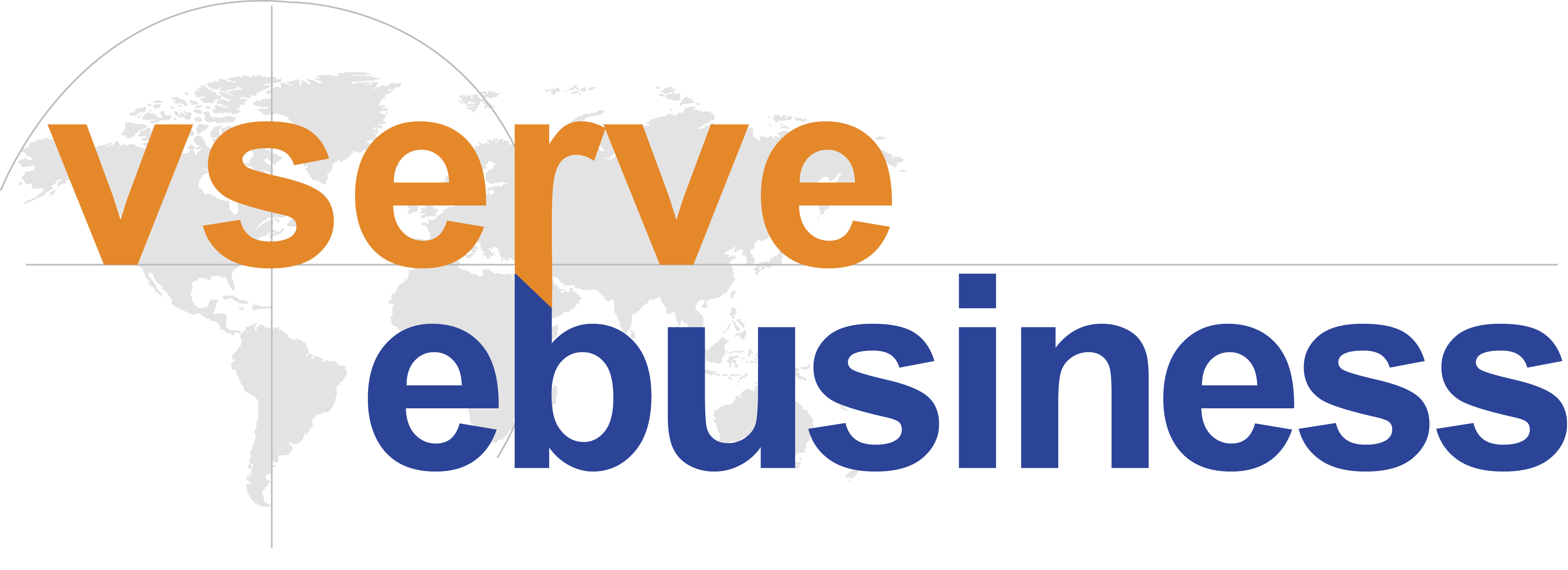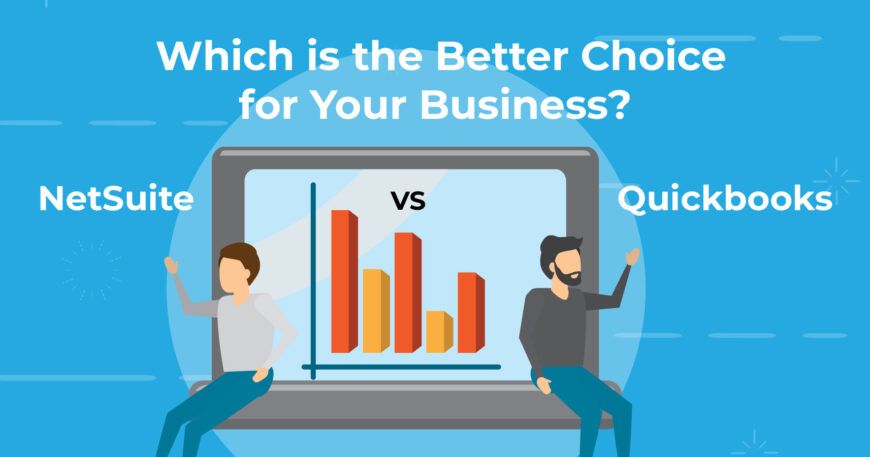As a business owner, choosing the right accounting software can be challenging. With so many options available in the market, how do you decide which is the best for your business? NetSuite and Quickbooks are two of the most popular software options, but which is the better choice for your company?
Accounting software is essential for businesses of all sizes to manage their finances, track their expenses, and stay on top of their tax obligations. One of the most significant decisions you’ll make as a business owner is choosing the right accounting software that fits your budget and meets your unique accounting needs.
NetSuite and Quickbooks are two software options that are often compared when it comes to accounting software for businesses. They both have pros and cons, but ultimately, the decision comes down to your business’s specific requirements. In this article, we’ll explore the features and benefits of NetSuite and Quickbooks to help you make an informed decision about the best choice for your business.
NetSuite
NetSuite is a cloud-based enterprise resource planning (ERP) system that offers a suite of business management applications that help businesses manage their finances, customer relationships, and operations. It was founded in 1998 and is now owned by Oracle Corporation. NetSuite is a popular solution for businesses of all sizes, from small and midsize to large enterprises.
Features and Benefits:
NetSuite provides a range of features and benefits for businesses, including:
- Financial management: NetSuite provides a complete financial management solution that includes accounting, billing, revenue recognition, and financial planning.
- Supply chain management: NetSuite’s supply chain management features include inventory and warehouse management, purchasing and vendor management, and order and fulfillment management.
- Timekeeping: With their CRM solution, NetSuite has embraced the proverbial truism that time is money. To better understand the worth of each client, customer, or lead, you can track the time your staff spends on individual interactions with remarkable accuracy.
- Management of a campaign: The campaign management feature of NetSuite CRM’s marketing automation tools enables you to develop marketing campaigns founded on facts rather than educated guesses. You can ensure that your marketing campaigns are optimized for the best results.
- Email promotion: Managing your email marketing campaigns in the same system is one of the critical advantages of NetSuite CRM. To increase your open rates, you can create highly targeted campaigns with compelling content that even target particular groups on your list.
- Paying incentives: With incentive compensation, your sales team has complete visibility into the available sales incentives. Error risk is significantly reduced as a result.
- Opportunities Management: Your sales team has immediate access to all the information necessary to maximize sales opportunities. Contact information, meeting notes, and categories of goods and services are all presented in an organized and understandable manner.
Pricing and Plan Options
The pricing and plan options for NetSuite depend on the size and needs of the business.
NetSuite offers three pricing plans:
- Limited Edition: This is the basic version of NetSuite designed for small businesses with limited needs. It includes essential features like financial, inventory, order, and customer management. The cost for this plan starts at $999 per month.
- Mid-Market Edition: This plan is designed for medium-sized businesses with more complex needs. It includes all the features of the Limited Edition plan plus advanced modules like project management, advanced inventory management, and advanced financials. The cost for this plan starts at $2,499 per month.
- Enterprise Edition: This plan is designed for larger businesses with complex needs. It includes all the features of the Mid-Market Edition plan plus more advanced features like global financial management, demand planning, and more. The cost for this plan starts at $4,999 per month.
It’s important to note that these prices are just starting points, and the final cost will depend on the business’s specific needs. Additionally, NetSuite requires an implementation fee, which can range from $10,000 to $100,000 or more, depending on the complexity of the implementation.
Target Audience and Suitability
NetSuite fits businesses of all sizes and industries, including manufacturing, retail, wholesale distribution, and service. It is particularly well-suited for businesses that have outgrown their existing accounting or ERP systems and are looking for a more comprehensive solution to help them manage all their operations. NetSuite is also a good fit for businesses that require a cloud-based solution that can be accessed from anywhere at any time.
QuickBooks
QuickBooks is an accounting software package developed and marketed by Intuit. It is primarily designed for small and medium-sized businesses to manage their financials, track income and expenses, and perform accounting tasks. QuickBooks was first released in 1983 and has since become one of the world’s most widely used accounting software packages.
Features and Benefits:
QuickBooks services offer a range of features and benefits for businesses, including
- Invoicing and billing: QuickBooks services make creating and sending invoices easy, tracking payments, and managing billing and expenses.
- Expense tracking: QuickBooks allow businesses to track and categorize expenses for tax purposes.
- Financial reporting: QuickBooks provides a variety of financial reports, such as profit and loss statements, cash flow statements, and balance sheets, to help businesses make informed financial decisions.
- Payroll management: QuickBooks offers payroll services allowing businesses to manage employee payroll and benefits.
- Integration: QuickBooks services can also integrate with other software and services, such as payment processors and customer relationship management systems, to streamline business operations.
Pricing and Plan Options:
QuickBooks services offer a range of pricing and plan options, including
- QuickBooks Online: This cloud-based version of QuickBooks starts at $25 per month and provides a range of features and functionality.
- QuickBooks Desktop: This is the traditional, installed version of QuickBooks, starting at $299 per user.
- QuickBooks Self-Employed: This version is designed for freelancers and self-employed individuals and starts at $15 monthly.
- QuickBooks Enterprise: This version is designed for large businesses and starts at $1,213.85 annually.
Target audience and suitability
QuickBooks services are suitable for small and medium-sized businesses, including freelancers and self-employed individuals. It is particularly well-suited for businesses that require a simple, user-friendly accounting solution that can be easily customized to meet their specific needs. QuickBooks is also a good fit for businesses that require a range of integrations with other software and services to streamline their operations.
Comparison
When deciding on a product or service, the comparison is a critical step. Here are some key points to consider when comparing Netsuite vs Quickbooks:
1. Feature Comparison
When comparing products or services, evaluating the features they offer is essential. Consider the parts you need, and ensure the products you’re comparing have all the necessary features. Consider any additional features that might be beneficial to your needs.
2. Pricing Comparison
Pricing is always an important factor when comparing Netsuite vs Quickbooks. Make sure you compare pricing for each option, including any additional costs or fees. It’s essential to consider the overall value you’ll receive for your money, not just the initial price.
3. Ease of Use Comparison
Ease of use is crucial when considering a product or service. It’s essential to evaluate each option’s user-friendly features, including interface, usability, and customer support. Consider your level of technical expertise and the level of support you require.
4. Scalability Comparison
Scalability is crucial when comparing Quickbooks vs Netsuite. Consider the future growth of your business or organization, and evaluate whether the product or service will be able to accommodate that growth. It’s essential to consider factors such as the number of users, features, and storage capacity when evaluating scalability.
When comparing different products or services, it’s essential to consider all the relevant factors to make an informed decision. By considering factors such as features, pricing, ease of use, and scalability, you can ensure that you’re selecting the best option for your needs.
Wrapping Up
Choosing between NetSuite vs Quickbooks ultimately depends on your business’s unique needs and goals. While both software options offer accounting and financial management solutions, NetSuite is geared toward larger, more complex businesses with more significant data management needs. Quickbooks services, on the other hand, are an ideal option for small to mid-sized businesses that require a more straightforward and user-friendly accounting system.
When making your decision, consider factors such as the size and complexity of your business, your budget, and the features and functionalities most vital to you. Ultimately, the right choice will help streamline your financial processes, improve decision-making, and position your business for long-term success.
Looking for expert advice on what to choose between NetSuite and Quickbooks? Comment down below, and we’ll answer your questions!





